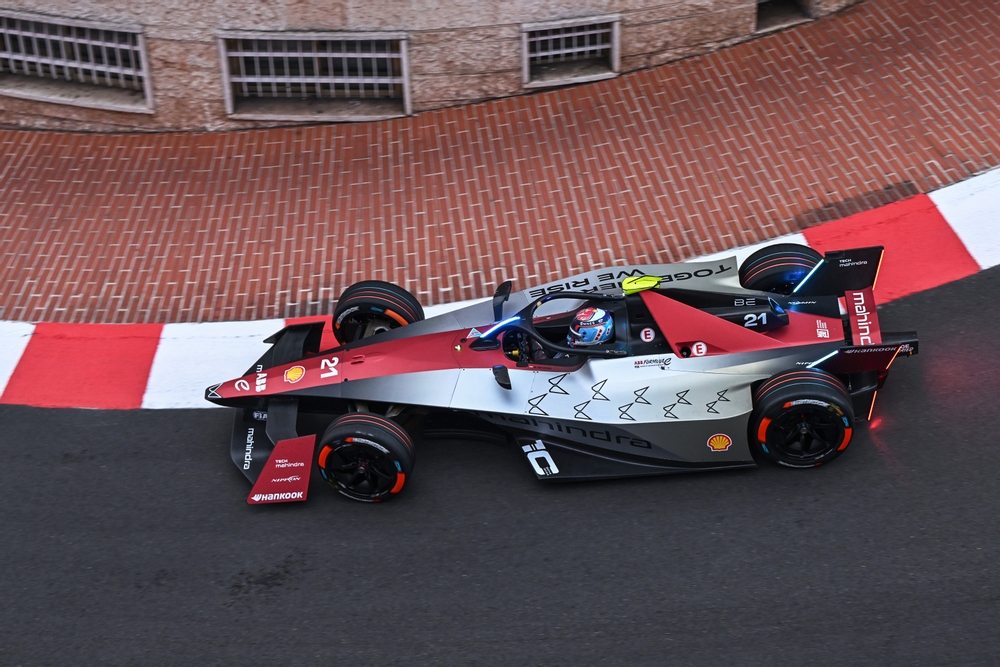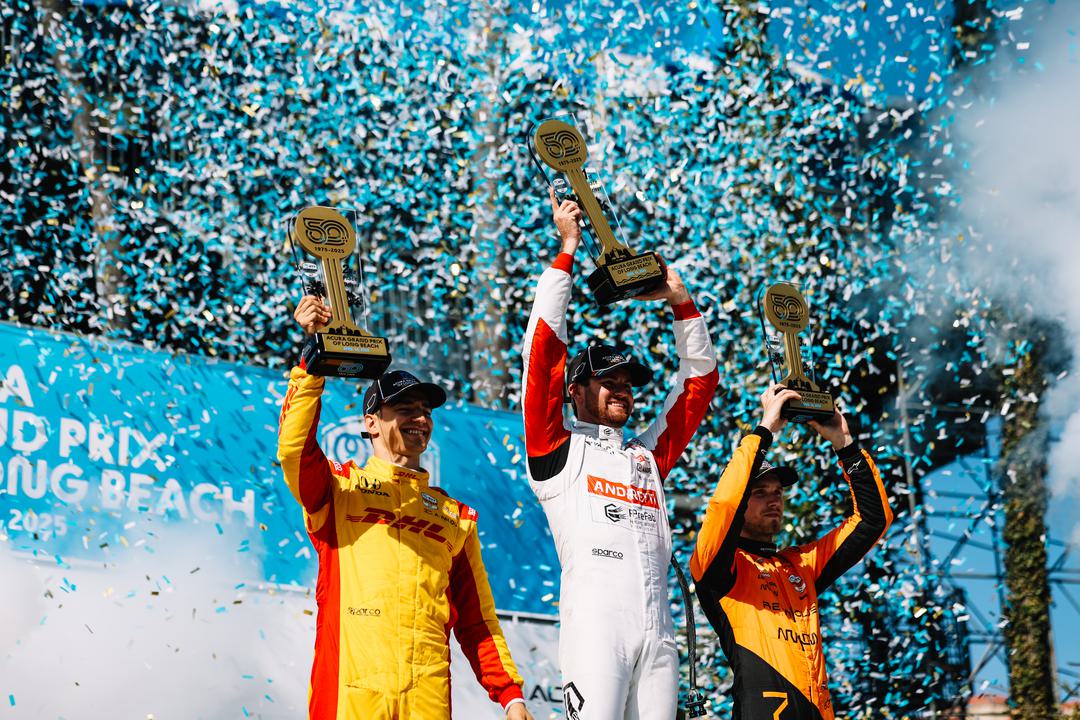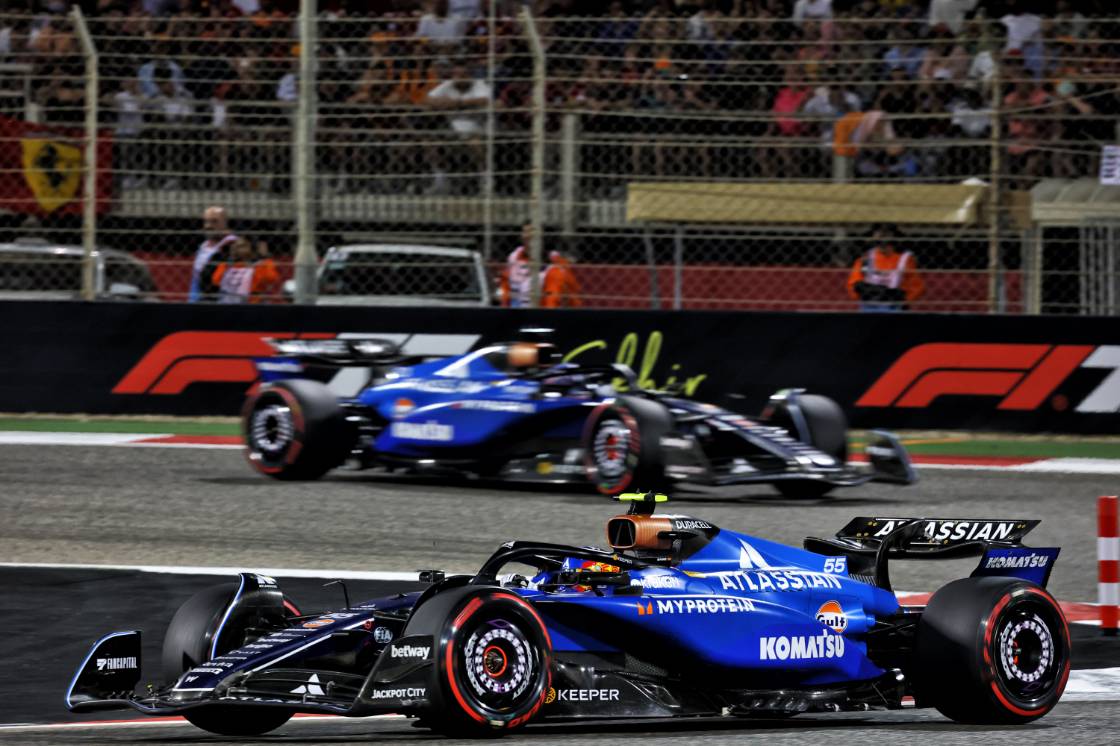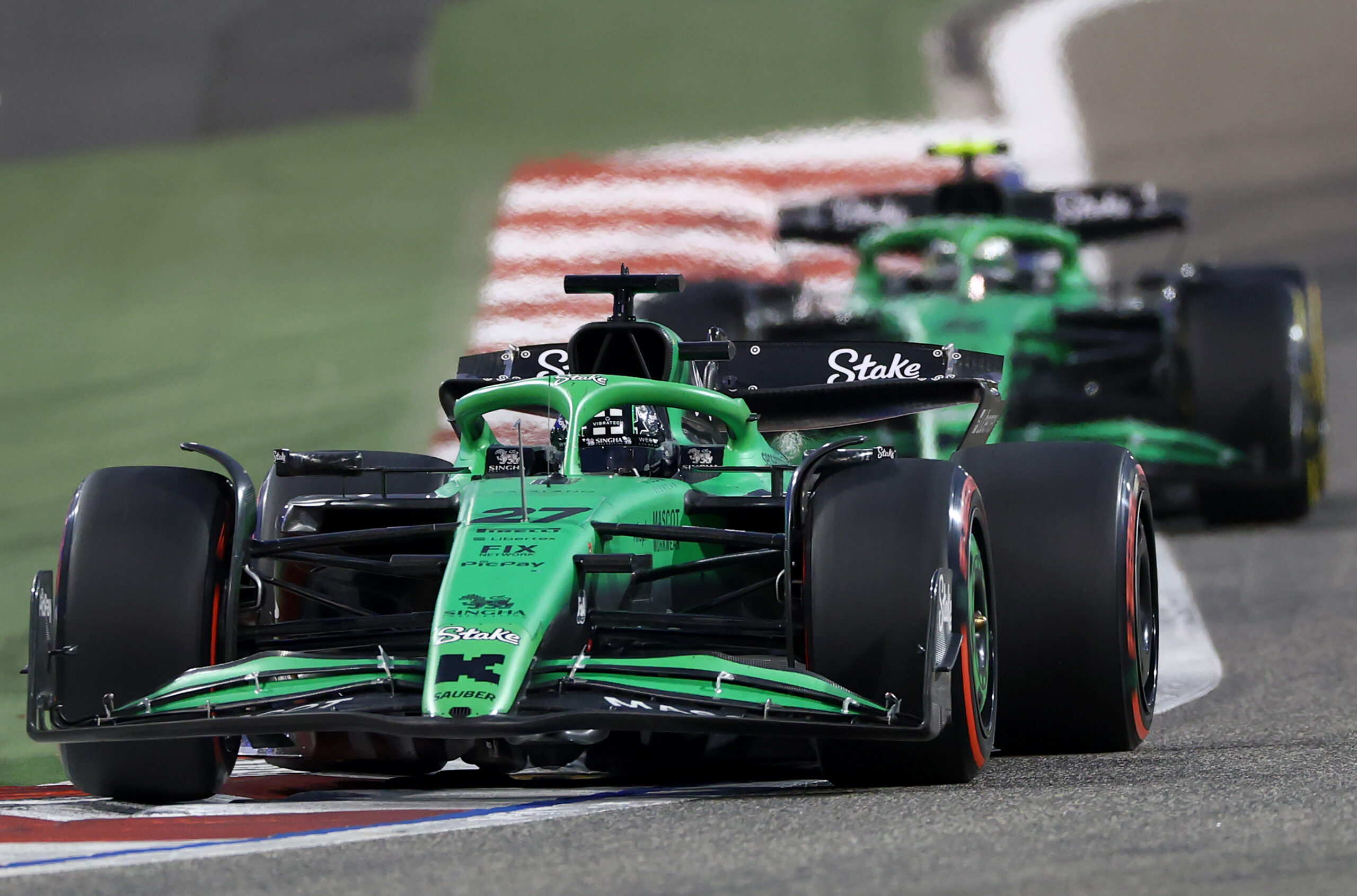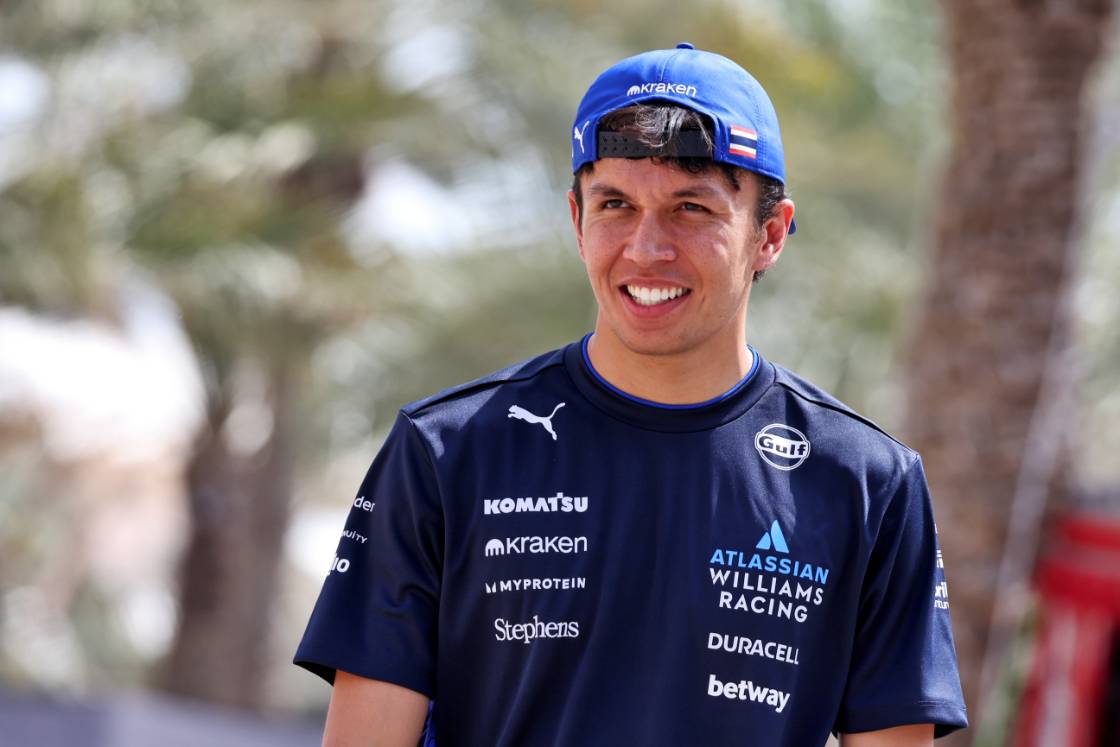Sustainability has been at the core of Formula E ever since the series was born over ten years ago. Shell and Mahindra Racing have now taken their sustainability efforts a step further, with an exciting and innovative E-Fluid recycling project. This project will not only change the way we race, but will without a doubt also have a huge impact on the way we drive our electric road cars.
Shell and Mahindra teamed up back in 2018, with the intention of creating market-leading, high-performance lubricant products, such as engine oils, transmission and axle oils. A logical partnership, as Formula E proves to be the perfect testing ground for innovations impacting both road cars and race cars.
Shell’s EV-Plus Transmission Fluid
Mahindra Racing is currently using Shell’s bespoke EV-Plus Transmission Fluid, that uses a base oil mix that is sourced from renewable biomass, making it 50% more carbon friendly than conventional oils. Earlier this year, the two companies announced an exciting new E-Fluid recycling project, that should reduce the carbon footprint with an additional 27% in comparison to the same fluid being disposed of after a race. The Formula E initiative is linked to another initiative the two parties have set up in India, where they collect commercial lubricants to then recycle them.
The three pillars: power & efficiency / durability & reliability / sustainability
Project lead Leonard Kieckebusch said: “Most of the parts of the cars are identical – the battery, the chassis, the wheels. The main difference you can make as a race team is the driveline, the electric motor, the reduction gear set and the lubricant. This means we can really make a technical impact on the performance, besides the driver and strategy, as technically the gearbox and lubricant are crucial.” Kieckebusch went on to explain that Shell’s development focusses on three different pillars: power & efficiency, durability & reliability and sustainability.
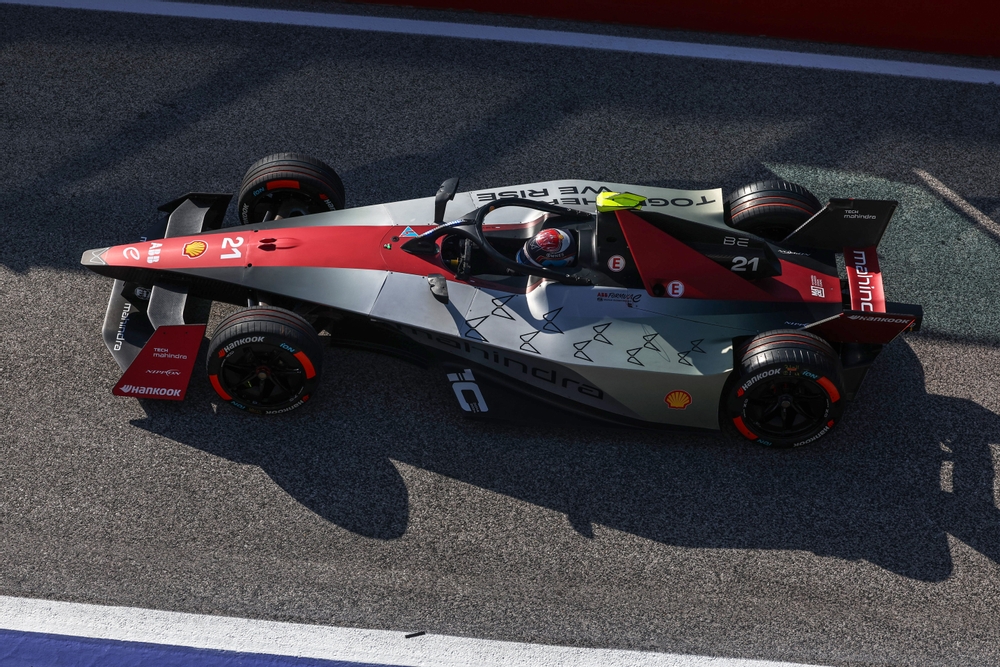
Power & efficiency is all about making sure that the powertrain runs as well as possible. “The main purpose is that we would like to go as long as possible with the battery, and we want to have sufficient power to overtake. Even milliseconds count in Formula E”, he emphasised. The lubricant was tested extensively and with success: they managed to find up to 0.25 seconds per race. “We have set up the actual gearbox in Hamburg, and we can measure which condition the gearbox is most efficient in. The Mahindra team was able to use this data and information to optimise the race strategy, and we are very proud to be making a contribution to the racing strategy as well.”
He emphasised that durability is equally important: “Efficiency is key, but on the other hand the gearbox needs to survive the race. You’re not allowed to change parts during the race, but not during the season either. You get a penalty if you open the gearbox, so that’s why it’s important that the lubricant is also reliable and provides durability.” The extensive tests have shown that the gearbox can last for at least 40 races, without extensive wear and tear. An impressive feat.
Last but not least, there is sustainability, which is a subject that’s very important for Kieckebusch personally. “The bespoke EV-Plus Transmission Fluid for Mahindra is tailor-made specifically for this gearbox. We screened various different candidates as well, this one was optimised. It consists of renewable feedstock, so the base is from renewable biomass and this is resulting in 60 percent of content carbon to be biogenic, so this can be plant-sourced for example. This leads to a higher biodegradable content, too.”
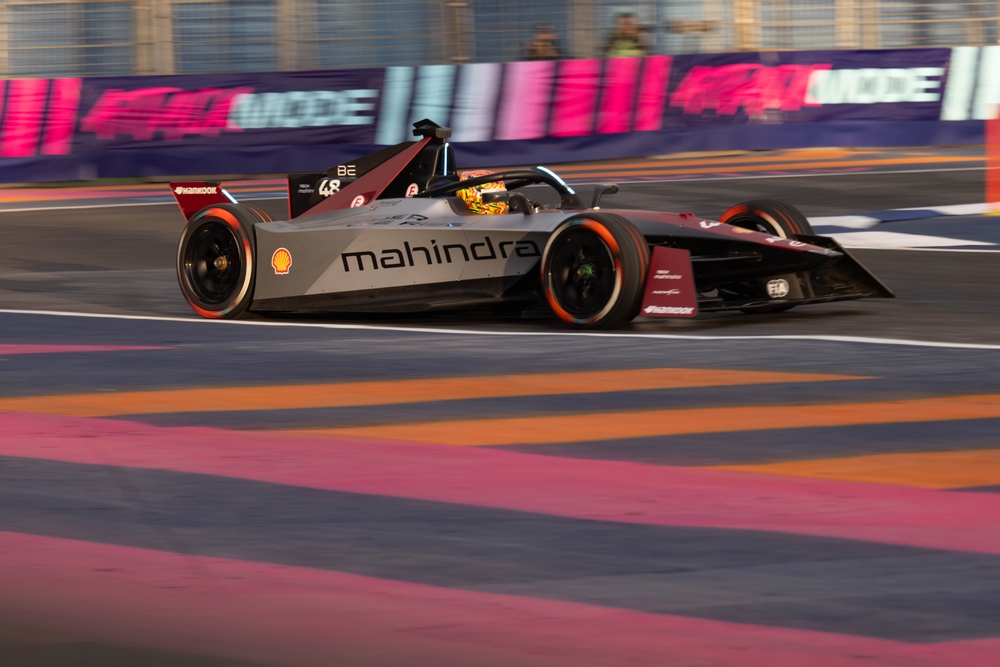
Shell’s E-Fluid recycling project
Mahindra and Shell were already doing a great job in terms of sustainability, but have found a way to make the entire process even more sustainable. They’ve collected oil samples from pre-season testing, and sent those to a lab to see what condition the oil was in. They filtered the oil, added some additional chemicals, and were then able to extract the same performance out of the recycled oil. In the future, this process could reduce waste and reduce the amount of oil needed. We could potentially see the recycled oil be used during the upcoming season finale in London.
Lewis Butler, head of design at Mahindra, is very excited about the progress that’s been made. “I think the partnership, in terms of how we’ve collaborated with one another, has been very positive. There are a lot of routine discussions about what we want to do, not only technically but also operationally, on a weekly basis. That’s something that I think internally we all enjoy, and we make sure that we work well with Shell on this topic. It’s something that we know gives us performance, and we’ll carry on doing so. I think the result of the recycled oil is particularly interesting for us going into the subsequent seasons, because it may mean that we don’t need to worry about replacing it as often as we would have done in the past.”
Kieckebusch highlights that the sustainability and recycling aspects are just a part of the whole picture. “Formula E, and especially the partnership with Mahindra, is very important for us to also develop the conventional products we have. The EV-Plus range is for passenger cars, for heavy duty electrified buses. By using Formula E as a test bed – you really can’t get more extreme test conditions than out there. We get a lot of knowledge about how different components perform under those extreme conditions.” This knowledge is then used to further develop the conventional products. “So basically, in all the EV-Plus products you can purchase, there’s always a little bit of Formula E involved as well.”

